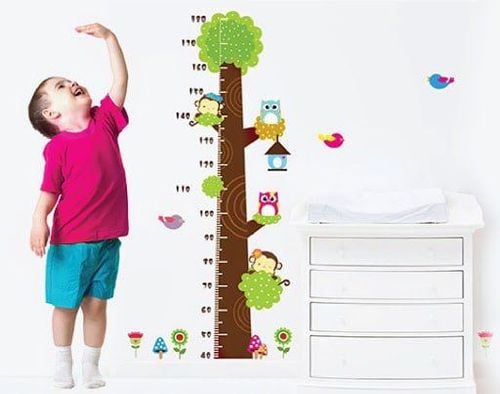This is an automatically translated article.
The article was professionally consulted by Resident Doctor Ho Thi Hong Tho - Neonatologist - Pediatrics - Neonatology Department - Vinmec Phu Quoc International General HospitalTaking care of babies and young children is one of the hard jobs that need a lot of time and effort. Babies between 11 and 12 months old have more energy needs than other ages and are often more active and curious about the world around them. Establishing a meal schedule for 11-month-old and 12-month-old children is a good thing to do to meet the basic needs of children.
1. What do children 11-12 months old need?
Getting into the habit of living with your baby is a personal thing. Learn to read young children's cues to build and develop eating, playing, and sleeping patterns that are appropriate to each family's circumstances. When creating a schedule for your baby, remember that by 11 and 12 months most babies need:
Solid foods three times a day. At this point, your baby should eat a variety of solid foods and play an active role during feeding time by serving food and drinking water from a cup with a straw himself.
11 to 12 months: babies need 600 – 1000 ml of breast milk or formula in a 24-hour period. Parents should consult more tips to know if your baby is getting enough breast milk or formula. When children are 1 year old, children can drink cow's milk in less than 1000 ml per day. If too much cow's milk is consumed, the baby will no longer enjoy eating other healthy foods and can lead to iron deficiency anemia.
Sleep less than 14 hours in a 24-hour period, including nighttime naps and daytime naps. Two naps during the day in the morning and afternoon are often chosen, although some children will only take one long nap per day. In addition, children need time to play, practice new skills, and interact with people.
Referring to the experiences of other parents can be of great help to first-time parents. Here are some schedules for 11-12 month olds built from real-life cases.
Trắc nghiệm: các chỉ số cần chú ý về sự phát triển thể chất của trẻ
Chiều cao, cân nặng của bé ở từng giai đoạn nên là bao nhiêu là bình thường, bao nhiêu là bất thường? Cùng ThS.BS Ma Văn Thấm điểm lại xem bạn đã nắm được các chỉ số phát triển thể chất của bé chưa nhé!The following content is prepared under supervision of Thạc sĩ, Bác sĩ y khoa, Ma Văn Thấm , Nhi , Phòng khám Đa khoa Quốc tế Vinmec Dương Đông(Phú Quốc)
2. Feeding schedule of 11-month-old babies who are still breastfed
This is a schedule built in combination between the parents' living habits and the baby's needs.
7 to 7:30 a.m.: Wake up and breastfeed for 10 to 15 minutes. 7:30 to 8 a.m.: Parents play in bed with their children or read books to their children. 8 a.m.: Put baby on the couch while mom makes breakfast 8:15 a.m.: Breakfast for 11-month-olds. Small pieces of homemade pancakes, toast, fruit, eggs, cheese bread or homemade cereal can be offered, along with a small cup of water. 8:45 to 9:30 a.m.: Children's playtime - Children get to read books or play with toys such as blocks or musical toys. 9:30 a.m. to 11 a.m.: Take a morning nap. 11 a.m.: Mom changes the baby's diaper, gets dressed, and puts the child in his or her own chair while making lunch. From 11:15 to 11:30 a.m.: Children's lunch, which may include small pieces of fruit or vegetables, wholemeal bread, avocado, beans, chicken, and cheese. Children should have their own small glass of water. Noon to 1:30 p.m.: Take the kids for a walk or go to the pool, attend mom and baby classes, pushchair exercise class, or do some errands. 1:30 p.m.: Breastfeed and take a nap. 2:30 to 3 p.m.: Baby wakes up.

3 to 4:30 p.m.: Mom and baby hang out together. Some activities that can refer to are errands, walking, swimming, meeting friends, playing bubbles or playing indoors, reading and singing. 4:30 p.m.: Have dinner with the same portion as lunch. Your baby can start eating the same things as adults and drinking from a small glass of water. After dinner, the baby is usually bathed. 5:30 p.m.: Let your baby play on his own while sitting in his chair and play while you eat. 6 to 6:30 p.m.: Playtime with Dad - mostly walking! 6:30 pm: Dad and baby walk around and talk like good night to their toys and the birds outside. Dad gives the baby to the mother for the last diaper change and feeding. 7 p.m.: Go to bed. Your baby may sleep through the night, but will wake several times a week. At that time, the father often tries to put the baby back to sleep, but often the mother has to breastfeed the baby.
3. Feeding schedule for 11-month-old babies with formula
The feeding schedule of an 11-month-old baby with formula is as follows:
7:30 to 8 am: Baby wakes up and takes about 200ml of formula. 9:30 a.m. to 10 a.m.: Time for breakfast. You can refer to the serving of oatmeal mixed with yogurt or pureed fruit, accompanied by snacks such as small bagels and cheese or dry cereal. 10:30 a.m.: Give your baby a nap, lasting about two hours. 12:30 p.m.: Lunch - dishes mom can refer to like cheese, chicken, veggies, cheese or avocado toast and apple toast. In addition, the baby also received 120ml of formula milk. Between naps and meals, you can spend time reading, letting your baby play on the floor while you cook, go for a walk, or take him to visit his grandparents. 3 to 4 p.m.: Baby continues to feed on a 100 ml bottle of formula. 6 p.m.: If baby doesn't feed between 3 and 4 p.m., offer about 150 to 180 milliliters of milk and a snack of small crackers or pieces of fruit. 7 p.m.: Dinner - The evening menu is often similar to lunch. Then the mother gave the baby a bath. Bath time in the evening should be taken every other day. 8:30 pm: Continue feeding about 180 ml of milk. 8-9 p.m.: Go to bed. A 1-year-old baby can sleep alone in a crib. The baby usually sleeps continuously until morning.

4. Feeding schedule of 12-month-old babies who are still breastfed
The feeding schedule for a breastfed 12-month-old baby is as follows:
Between 7 and 8 am: Baby wakes up and mom feeds him, then he'll play on his own while mom eats breakfast. Around 8:30 a.m. to 9:00 a.m.: Baby has breakfast - usually waffles cut into small pieces, yogurt, some baby food or cereal, and some fruit. Baby drinks a cup of whole milk or water, but only a few tens of milliliters. If the weather is nice, take your baby for a walk after eating. 10:30 a.m.: Give your baby a nap for about one to two hours. Lunch: Lunch - Give your one-year-old a lunch that includes a jar of baby food, chicken or turkey with vegetables, plus some dry cereal and some cheese, fruit, or corn. Vegetables should be mixed in food to make it easier for your baby to eat. Your baby drinks milk and water throughout the day but probably only gets about 250 ml in total. 1 to 2:30 pm: Mother and baby play together, let the baby practice walking around the house. Sometimes that can be replaced by doing some chores. 2:30 to 3 p.m.: Snack time followed by a nap for another hour and 10 minutes. 4 p.m.: More playtime or running errands. Around 5pm, my husband took over and I got some rest. 5:30 p.m.: Dinnertime - baby food is basically the same as lunch. 7:30 p.m.: Bath, read, breastfeed, brush teeth, and baby usually sleeps at 8 p.m. Taking care of babies and young children is never easy, especially for first-time parents. Children not only need to be provided with adequate nutrition, but also have to ensure a scientific play and sleep schedule.
In addition to dietary supplements for the best development of 11-month-old children, parents can give children support foods containing zinc and essential micro-minerals such as Lysine, chromium, selenium, vitamin group B ... helps to fully meet the nutritional needs of children. At the same time, these essential vitamins also support digestion, enhance nutrient absorption, strengthen resistance, help children eat well and develop comprehensively.
Reference source: babycenter.com















